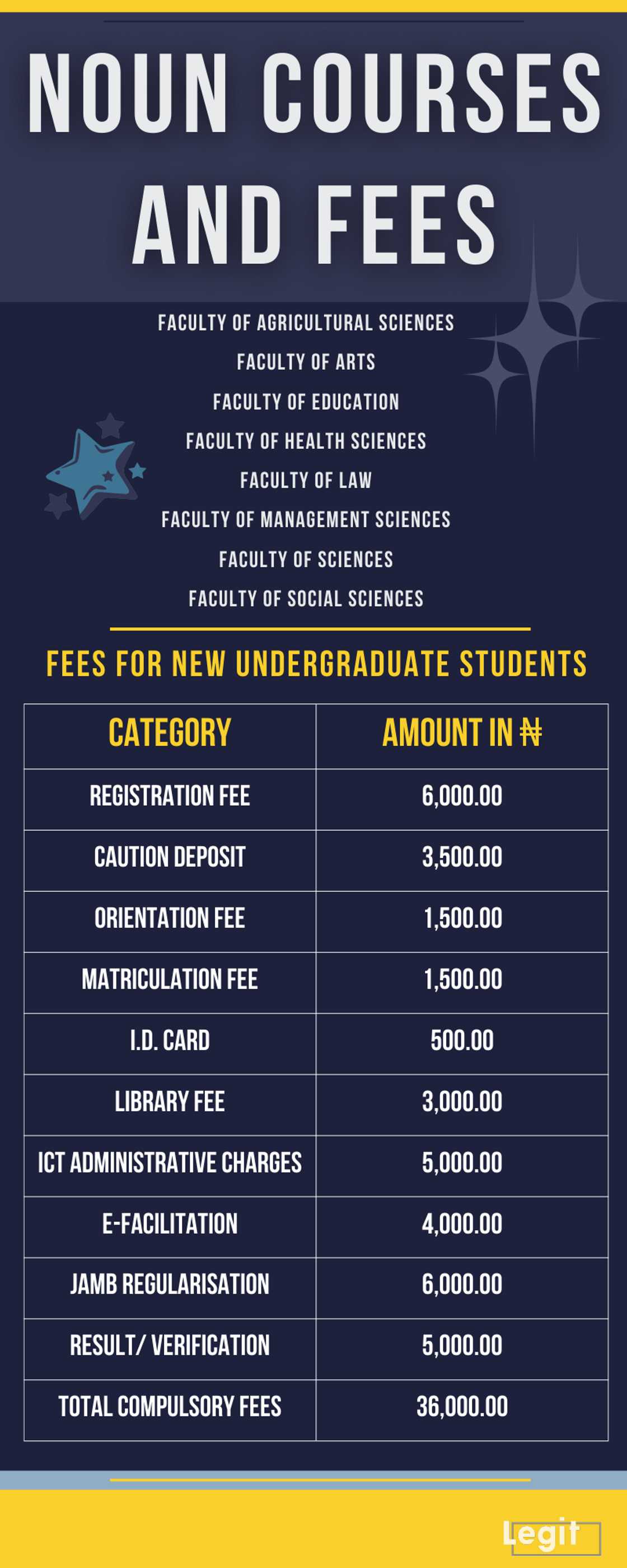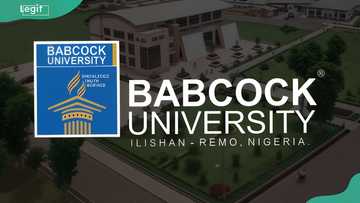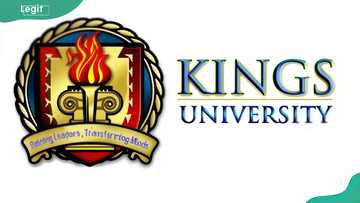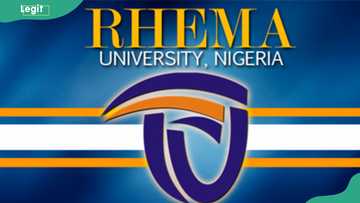The National Open University of Nigeria (NOUN) is the largest higher learning institution in Nigeria by student numbers. It is licensed by the National Universities Commission to offer only open and distance learning. NOUN provides flexible education to learners across the country. This guide highlights NOUN courses and fees for the 2025/2026 academic year.

Source: UGC
TABLE OF CONTENTS
Key takeaways
- NOUN offers flexible undergraduate and postgraduate courses in fields like education, management, science, and health.
- Fees remain affordable for most programmes, with new undergraduate students paying about ₦64,250 in compulsory fees.
- Admission requirements vary by programme, but most courses need relevant O-level results or prior qualifications.
- Many programmes run for three to four years with room for extended study.
NOUN courses and fees: All there is to know
NOUN is known for its wide range of quality courses that draw students every year. If you are planning to study here, this guide covers all you need to know about National Open University courses and fees.
What are the courses offered at the National Open University?
NOUN organizes its programmes into eight distinct faculties. Below is a detailed list of all National Open University courses and requirements.
Faculty of Agricultural Sciences
The department hosts four programmes, as listed below.
- B.Sc. Hotel and Tourism Management
- B.Sc. Agricultural Extension and Management
- B.Agric. Agricultural Economics and Agribusiness
- B.Agric. Agricultural Extension and Rural Development
Faculty of Arts
The Faculty of Arts has various departments. The courses offered under this faculty are listed below.
- Ph.D Christian Religious Studies
- M.A. English
- M.A Christian Religious Studies
- M.A. Islamic Studies
- B.A. Philosophy\
- B.A. Igbo
- B.A. Yoruba
- B.A. Hausa
- B.A. Arabic Language and Literature
- B.A. Christian Religious Studies
- B.A. Islamic Studies
- B.A. French
- B.A. English
- PGD. Christian Religious Studies

Source: UGC
Faculty of Education
There are five departments under this faculty. They include Arts and Social Science Education (ASSE), Educational Foundations, Science Education, Health and Human Kinetics, and Library and Information Science. The courses offered under these departments are listed below.
- B.Sc. (Ed) Human Kinetics
- BLIS Library and Information Science
- B.Sc.(Ed) Health Education
- PhD Mathematical Education
- PhD Educational Technology
- PhD Science Education
- PhD Educational Administration and Planning
- BA (Ed) Early Childhood Education
- BA (Ed) French
- BA (Ed) English
- BA (Ed) Primary Education
- B.Sc.(Ed) Computer Science
- B.Sc.(Ed) Mathematics
- B.Sc.(Ed) Biology
- B.Sc.(Ed) Integrated Science
- B.Sc.(Ed) Physics
- B.Sc.(Ed) Chemistry
- B.Sc.(Ed) Agricultural Science
- B.Sc.(Ed) Business Education
- M.Ed Guidance and Counselling
- M.Ed. Educational Technology
- M.Ed. Educational Administration and Planning
- M.Ed. Science Education
- Postgraduate Diploma in Education (PGDE)
Faculty of Health Sciences
In the Faculty of Health Sciences, the institution offers the courses listed below.
- M.Sc. Public Health
- B.Sc. Public Health
- B.Sc. Environmental Health Science
- (BNSc) Bachelor of Nursing Science

Source: UGC
Faculty of Law
For those interested in law, there are various departments under the Faculty of Law. Below is a list of the courses offered.
- Bachelor of Laws (LL.B)
- Postgraduate Diploma in Law (PGD Legislative Drafting)
- Master of Laws (LLM)
- PhD Law
Faculty of Management Sciences
The Faculty of Management Sciences has the second-highest number of courses, as listed below.
- PhD Public Administration
- PhD Business Administration
- M.Sc. Entrepreneurship
- M.Sc. Public Administration
- M.Sc. Business Administration
- Master of Business Administration (MBA)
- Master of Public Administration (MPA)
- B.Sc. Cooperative and Rural Development
- B.Sc. Marketing
- B.Sc. Business Administration
- B.Sc. Entrepreneurship
- B.Sc. Accounting
- B.Sc. Transport Management
- B.Sc. Banking and Finance
- B.Sc. Public Administration
- PGD Entrepreneurship
- PGD Business Administration
- PGD Public Administration
Faculty of Sciences
Below is a list of science courses offered in NOUN under the Faculty of Sciences:
- PhD Information Technology
- B.Sc. Physics
- B.Sc. Biology
- B.Sc. Chemistry
- M.Sc. Information Technology (Internet Options)
- PGD Information Technology
- B.Sc. Mathematics/Computer Science
- B.Sc. Mathematics
- B.Sc. Environmental Management and Toxicology
- B.Sc. Computer Science
- B.Sc. Information Technology

Source: Instagram
Faculty of Social Sciences
The courses offered under the Faculty of Social Sciences are listed below.
- B.Sc. Tourism Studies
- PGD. Criminology and Security Studies
- M.Sc. Peace Studies and Conflict Resolution
- B.Sc. Mass Communication
- PhD Peace Studies and Conflict Resolution
- PGD Economics
- B.Sc. Criminology and Security Studies
- M.Sc. Criminology and Security Studies
- B.Sc. Film Production
- PGD. Peace Studies and Conflict Resolution
- PhD Mass Communication
- B.Sc. Political Science
- PGD Mass Communication
- B.Sc. Development Studies
- B.Sc. Peace Studies and Conflict Resolution
- M.Sc. Mass Communication
- B.Sc. Economics
Basic requirements for undergraduate programmes at NOUN
Below are the requirements for admission into NOUN.
- An applicant for undergraduate admission into NOUN must have at least five O-level credits. English language and mathematics are required.
- Some programmes have extra requirements. You can view them after selecting the programme and entry level on the faculty admission page.
- To begin an application, choose the faculty, programme, and entry level. This enables the View Requirement button.
- Click the button to see the requirements. It also unlocks the Apply button on the pre-payment page.
- Fill in all required details on the page and submit the form.
- After submission, you will be redirected to Remita to generate an RRR invoice. Use the invoice to pay for the application form.
- Online card payments give you instant access to the form. Fill it and submit it.
- If you pay at a bank, click Continue After Payment and enter your Unique ID and RRR. You can also change your programme.
- Applicants who used an old RRR from a previous semester must restart the application. Stop at the Remita page and use the new Unique ID with the old RRR.
- A successful payment generates the online application form. Complete it and submit it.
- The admission process is automated. The result appears almost instantly.
NB: It is mandatory to ensure you meet the programme’s minimum requirements before applying and submitting your application.

Source: Facebook
NOUN school fees in 2025
Cost-effectiveness is one of the objectives of the National Open University of Nigeria. The fees differ depending on the student’s level of education and whether they are new students or continuing students.
The tables below show the compulsory NOUN school fees. Note that the tuition fee is not included because it varies from one course to another. If you have been wondering how to calculate NOUN school fees, simply add the compulsory amount and the tuition invoice you will receive from the university.
New undergraduate students
The compulsory fees for new undergraduate students are explored in the table below.
|
Fee description |
Amount in ₦ |
|
Acceptance fee |
7,500.00 |
|
Caution deposit |
5000.00 |
|
Orientation fee |
3,000.00 |
|
Matriculation fee |
2,500.00 |
|
I.D. card |
1000.00 |
|
Library fee |
3,000.00 |
|
ICT administrative charges |
5,000.00 |
|
E-Facilitation |
4,000.00 |
|
JAMB regularisation |
6,000.00 |
|
Result/ Verification |
10,000.00 |
|
Tertiary Institutions Social Health Insurance Programme (TISHIP) |
5,000.00 |
|
e-Facilitation |
7,500.00 |
|
Biometric and Proctoring Fee |
1,250.00 |
|
ICT Fee |
7,500.00 |
|
Library Fee |
4,000.00 |
|
Registration Fee |
10,000.00 |
|
Total compulsory fees |
64,250.00 |
Returning undergraduate students
The compulsory fees for returning undergraduate students are explored in the table below.
|
Category |
Amount in ₦ |
|
Tertiary Institutions Social Health Insurance Programme (TISHIP) |
5,000.00 |
|
Registration fee |
8,500.00 |
|
Library fee |
3,000.00 |
|
ICT administrative charges |
5,000.00 |
|
E-Facilitation |
4,000.00 |
|
Biometric and Proctoring Fee |
1,250.00 |
|
Total compulsory fees |
26,750.00 |
New postgraduate students
For new postgraduate students, the fee will be determined by the programme and the number of courses chosen. The semester registration fee is ₦10,000.
Returning postgraduate students
The compulsory fees for returning postgraduate students are explored in the table below.
|
Category |
Amount in ₦ |
|
Tertiary Institutions Social Health Insurance Programme (TISHIP) |
5,000.00 |
|
Registration fee |
12,500.00 |
|
Library fee |
5,000.00 |
|
ICT administrative charges |
7,500.00 |
|
E-Facilitation |
7,500.00 |
|
Biometric and Proctoring Fee |
1,250.00 |
|
Total compulsory fees |
38,750.00 |
Ancillary charges
The NOUN ancillary charges are explored in the table below.
|
Category |
Amount in ₦ |
|
Undergraduate project fees |
15,000.00 |
|
Postgraduate diploma project fees |
25,000.00 |
|
Masters project fees |
40,000.00 |
|
Undergraduate exam fees |
1,000.00 per course |
|
Postgraduate exam fees |
2,000.00 per course |
How to apply for NOUN admission
Here’s a simple guide to the seamless application process for admission at NOUN.
- Visit the NOUN website.
- On the Home Page, go to the Menu Bar, and click on Apply for Admission.
- Select either Undergraduate Programme or Postgraduate Programme.
- Go to Choose Faculty on the left-hand side of the screen.
- Choose your faculty and fill in the displayed form. Ensure you confirm that you meet the entry criteria.
- Click Apply to proceed.
- Take note of the UNIQUE ID displayed.
- Click Continue and follow the prompts to pay the application fee. Copy and take your RRR number to any bank branch for payment.
- After completing the payment process, go to Continue After Payment.
- Input the Unique ID, RRR number and Programme and click Proceed.
- Fill in the forms, ensuring you make no errors, and click Submit.
How much is the NOUN school fee and acceptance fee?
The mandatory fee for new undergraduate students is ₦64,250. The tuition fee varies depending on the course and level of study. The acceptance fee is ₦7,500.
How much are Open University school fees?
The tuition fee at NOUN varies depending on the course and level of study. Check out the tables above for the compulsory fees.
How long are NOUN courses?
Those who make a 200-level entry have a minimum length of three years, while 100-level entry students take four years to complete their undergraduate courses.
Do National Open University graduates go for NYSC?
The National Open University of Nigeria is among Nigeria’s top 25 best academic institutions. In January 2020, it hit a new milestone after it announced that all graduates from the institution would be going to the NYSC.
Is the National Open University certificate recognised in Nigeria?
NOUN is the only institution of tertiary learning recognised as an Open and Distance Learning institution. More than ten institutions across the country provide distance learning programmes. However, NOUN is the only recognised one.
Having a basic understanding of all NOUN courses and fees is important for all prospective students. Consider choosing a course you feel comfortable with and one that aligns with your interests.

Source: Original
Legit.ng recently published all the details about Ebonyi State University courses, school fees and cut-off marks. Ebonyi State University (EBSU) is a public university established in 1999 in Abakaliki, Ebonyi State.
It is described as the citadel of learning, the university of first choice, and the nation’s pride. As a full-fledged multidisciplinary university, it offers several academic programmes.
Source: Legit.ng



















